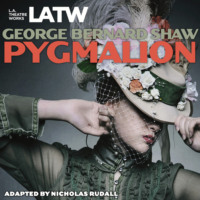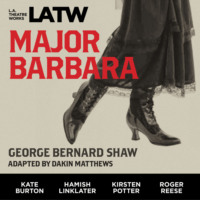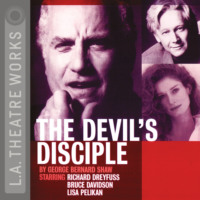
Полная версия
The Collected Works of Bernard Shaw
Here we have come to the central fact of the question: a fact nobody avows, which is yet the true explanation of the monstrous system of child imprisonment and torture which we disguise under such hypocrisies as education, training, formation of character and the rest of it. This fact is simply that a child is a nuisance to a grown-up person. What is more, the nuisance becomes more and more intolerable as the grown-up person becomes more cultivated, more sensitive, and more deeply engaged in the highest methods of adult work. The child at play is noisy and ought to be noisy: Sir Isaac Newton at work is quiet and ought to be quiet. And the child should spend most of its time at play, whilst the adult should spend most of his time at work. I am not now writing on behalf of persons who coddle themselves into a ridiculous condition of nervous feebleness, and at last imagine themselves unable to work under conditions of bustle which to healthy people are cheerful and stimulating. I am sure that if people had to choose between living where the noise of children never stopped and where it was never heard, all the goodnatured and sound people would prefer the incessant noise to the incessant silence. But that choice is not thrust upon us by the nature of things. There is no reason why children and adults should not see just as much of one another as is good for them, no more and no less. Even at present you are not compelled to choose between sending your child to a boarding school (which means getting rid of it altogether on more or less hypocritical pretences) and keeping it continually at home. Most working folk today either send their children to day schools or turn them out of doors. This solves the problem for the parents. It does not solve it for the children, any more than the tethering of a goat in a field or the chasing of an unlicensed dog into the streets solves it for the goat or the dog; but it shews that in no class are people willing to endure the society of their children, and consequently that it is an error to believe that the family provides children with edifying adult society, or that the family is a social unit. The family is in that, as in so many other respects, a humbug. Old people and young people cannot walk at the same pace without distress and final loss of health to one of the parties. When they are sitting indoors they cannot endure the same degrees of temperature and the same supplies of fresh air. Even if the main factors of noise, restlessness, and inquisitiveness are left out of account, children can stand with indifference sights, sounds, smells, and disorders that would make an adult of fifty utterly miserable; whilst on the other hand such adults find a tranquil happiness in conditions which to children mean unspeakable boredom. And since our system is nevertheless to pack them all into the same house and pretend that they are happy, and that this particular sort of happiness is the foundation of virtue, it is found that in discussing family life we never speak of actual adults or actual children, or of realities of any sort, but always of ideals such as The Home, a Mother's Influence, a Father's Care, Filial Piety, Duty, Affection, Family Life, etc. etc., which are no doubt very comforting phrases, but which beg the question of what a home and a mother's influence and a father's care and so forth really come to in practice. How many hours a week of the time when his children are out of bed does the ordinary bread-winning father spend in the company of his children or even in the same building with them? The home may be a thieves' kitchen, the mother a procuress, the father a violent drunkard; or the mother and father may be fashionable people who see their children three or four times a year during the holidays, and then not oftener than they can help, living meanwhile in daily and intimate contact with their valets and lady's-maids, whose influence and care are often dominant in the household. Affection, as distinguished from simple kindliness, may or may not exist: when it does it either depends on qualities in the parties that would produce it equally if they were of no kin to one another, or it is a more or less morbid survival of the nursing passion; for affection between adults (if they are really adult in mind and not merely grown-up children) and creatures so relatively selfish and cruel as children necessarily are without knowing it or meaning it, cannot be called natural: in fact the evidence shews that it is easier to love the company of a dog than of a commonplace child between the ages of six and the beginnings of controlled maturity; for women who cannot bear to be separated from their pet dogs send their children to boarding schools cheerfully. They may say and even believe that in allowing their children to leave home they are sacrificing themselves for their children's good; but there are very few pet dogs who would not be the better for a month or two spent elsewhere than in a lady's lap or roasting on a drawingroom hearthrug. Besides, to allege that children are better continually away from home is to give up the whole popular sentimental theory of the family; yet the dogs are kept and the children are banished.
Child Fanciers
There is, however, a good deal of spurious family affection. There is the clannishness that will make a dozen brothers and sisters who quarrel furiously among themselves close up their ranks and make common cause against a brother-in-law or a sister-in-law. And there is a strong sense of property in children, which often makes mothers and fathers bitterly jealous of allowing anyone else to interfere with their children, whom they may none the less treat very badly. And there is an extremely dangerous craze for children which leads certain people to establish orphanages and baby farms and schools, seizing any pretext for filling their houses with children exactly as some eccentric old ladies and gentlemen fill theirs with cats. In such places the children are the victims of all the caprices of doting affection and all the excesses of lascivious cruelty. Yet the people who have this morbid craze seldom have any difficulty in finding victims. Parents and guardians are so worried by children and so anxious to get rid of them that anyone who is willing to take them off their hands is welcomed and whitewashed. The very people who read with indignation of Squeers and Creakle in the novels of Dickens are quite ready to hand over their own children to Squeers and Creakle, and to pretend that Squeers and Creakle are monsters of the past. But read the autobiography of Stanley the traveller, or sit in the company of men talking about their school-days, and you will soon find that fiction, which must, if it is to be sold and read, stop short of being positively sickening, dare not tell the whole truth about the people to whom children are handed over on educational pretexts. Not very long ago a schoolmaster in Ireland was murdered by his boys; and for reasons which were never made public it was at first decided not to prosecute the murderers. Yet all these flogging schoolmasters and orphanage fiends and baby farmers are "lovers of children." They are really child fanciers (like bird fanciers or dog fanciers) by irresistible natural predilection, never happy unless they are surrounded by their victims, and always certain to make their living by accepting the custody of children, no matter how many alternative occupations may be available. And bear in mind that they are only the extreme instances of what is commonly called natural affection, apparently because it is obviously unnatural.
The really natural feeling of adults for children in the long prosaic intervals between the moments of affectionate impulse is just that feeling that leads them to avoid their care and constant company as a burden beyond bearing, and to pretend that the places they send them to are well conducted, beneficial, and indispensable to the success of the children in after life. The true cry of the kind mother after her little rosary of kisses is "Run away, darling." It is nicer than "Hold your noise, you young devil; or it will be the worse for you"; but fundamentally it means the same thing: that if you compel an adult and a child to live in one another's company either the adult or the child will be miserable. There is nothing whatever unnatural or wrong or shocking in this fact; and there is no harm in it if only it be sensibly faced and provided for. The mischief that it does at present is produced by our efforts to ignore it, or to smother it under a heap of sentimental lies and false pretences.
Childhood as a State of Sin
Unfortunately all this nonsense tends to accumulate as we become more sympathetic. In many families it is still the custom to treat childhood frankly as a state of sin, and impudently proclaim the monstrous principle that little children should be seen and not heard, and to enforce a set of prison rules designed solely to make cohabitation with children as convenient as possible for adults without the smallest regard for the interests, either remote or immediate, of the children. This system tends to produce a tough, rather brutal, stupid, unscrupulous class, with a fixed idea that all enjoyment consists in undetected sinning; and in certain phases of civilization people of this kind are apt to get the upper hand of more amiable and conscientious races and classes. They have the ferocity of a chained dog, and are proud of it. But the end of it is that they are always in chains, even at the height of their military or political success: they win everything on condition that they are afraid to enjoy it. Their civilizations rest on intimidation, which is so necessary to them that when they cannot find anybody brave enough to intimidate them they intimidate themselves and live in a continual moral and political panic. In the end they get found out and bullied. But that is not the point that concerns us here, which is, that they are in some respects better brought up than the children of sentimental people who are always anxious and miserable about their duty to their children, and who end by neither making their children happy nor having a tolerable life for themselves. A selfish tyrant you know where to have, and he (or she) at least does not confuse your affections; but a conscientious and kindly meddler may literally worry you out of your senses. It is fortunate that only very few parents are capable of doing what they conceive their duty continuously or even at all, and that still fewer are tough enough to ride roughshod over their children at home.
School
But please observe the limitation "at home." What private amateur parental enterprise cannot do may be done very effectively by organized professional enterprise in large institutions established for the purpose. And it is to such professional enterprise that parents hand over their children when they can afford it. They send their children to school; and there is, on the whole, nothing on earth intended for innocent people so horrible as a school. To begin with, it is a prison. But it is in some respects more cruel than a prison. In a prison, for instance, you are not forced to read books written by the warders and the governor (who of course would not be warders and governors if they could write readable books), and beaten or otherwise tormented if you cannot remember their utterly unmemorable contents. In the prison you are not forced to sit listening to turnkeys discoursing without charm or interest on subjects that they dont understand and dont care about, and are therefore incapable of making you understand or care about. In a prison they may torture your body; but they do not torture your brains; and they protect you against violence and outrage from your fellow prisoners. In a school you have none of these advantages. With the world's bookshelves loaded with fascinating and inspired books, the very manna sent down from Heaven to feed your souls, you are forced to read a hideous imposture called a school book, written by a man who cannot write: a book from which no human being can learn anything: a book which, though you may decipher it, you cannot in any fruitful sense read, though the enforced attempt will make you loathe the sight of a book all the rest of your life. With millions of acres of woods and valleys and hills and wind and air and birds and streams and fishes and all sorts of instructive and healthy things easily accessible, or with streets and shop windows and crowds and vehicles and all sorts of city delights at the door, you are forced to sit, not in a room with some human grace and comfort or furniture and decoration, but in a stalled pound with a lot of other children, beaten if you talk, beaten if you move, beaten if you cannot prove by answering idiotic questions that even when you escaped from the pound and from the eye of your gaoler, you were still agonizing over his detestable sham books instead of daring to live. And your childish hatred of your gaoler and flogger is nothing to his adult hatred of you; for he is a slave forced to endure your society for his daily bread. You have not even the satisfaction of knowing how you are torturing him and how he loathes you; and you give yourself unnecessary pains to annoy him with furtive tricks and spiteful doing of forbidden things. No wonder he is sometimes provoked to fiendish outbursts of wrath. No wonder men of downright sense, like Dr Johnson, admit that under such circumstances children will not learn anything unless they are so cruelly beaten that they make desperate efforts to memorize words and phrases to escape flagellation. It is a ghastly business, quite beyond words, this schooling.
And now I hear cries of protest arising all round. First my own schoolmasters, or their ghosts, asking whether I was cruelly beaten at school? No; but then I did not learn anything at school. Dr Johnson's schoolmaster presumably did care enough whether Sam learned anything to beat him savagely enough to force him to lame his mind—for Johnson's great mind was lamed—by learning his lessons. None of my schoolmasters really cared a rap (or perhaps it would be fairer to them to say that their employers did not care a rap and therefore did not give them the necessary caning powers) whether I learnt my lessons or not, provided my father paid my schooling bill, the collection of which was the real object of the school. Consequently I did not learn my school lessons, having much more important ones in hand, with the result that I have not wasted my life trifling with literary fools in taverns as Johnson did when he should have been shaking England with the thunder of his spirit. My schooling did me a great deal of harm and no good whatever: it was simply dragging a child's soul through the dirt; but I escaped Squeers and Creakle just as I escaped Johnson and Carlyle. And this is what happens to most of us. We are not effectively coerced to learn: we stave off punishment as far as we can by lying and trickery and guessing and using our wits; and when this does not suffice we scribble impositions, or suffer extra imprisonments—"keeping in" was the phrase in my time—or let a master strike us with a cane and fall back on our pride at being able to hear it physically (he not being allowed to hit us too hard) to outface the dishonor we should have been taught to die rather than endure. And so idleness and worthlessness on the one hand and a pretence of coercion on the other became a despicable routine. If my schoolmasters had been really engaged in educating me instead of painfully earning their bread by keeping me from annoying my elders they would have turned me out of the school, telling me that I was thoroughly disloyal to it; that I had no intention of learning; that I was mocking and distracting the boys who did wish to learn; that I was a liar and a shirker and a seditious little nuisance; and that nothing could injure me in character and degrade their occupation more than allowing me (much less forcing me) to remain in the school under such conditions. But in order to get expelled, it was necessary commit a crime of such atrocity that the parents of other boys would have threatened to remove their sons sooner than allow them to be schoolfellows with the delinquent. I can remember only one case in which such a penalty was threatened; and in that case the culprit, a boarder, had kissed a housemaid, or possibly, being a handsome youth, been kissed by her. She did not kiss me; and nobody ever dreamt of expelling me. The truth was, a boy meant just so much a year to the institution. That was why he was kept there against his will. That was why he was kept there when his expulsion would have been an unspeakable relief and benefit both to his teachers and himself.
It may be argued that if the uncommercial attitude had been taken, and all the disloyal wasters and idlers shewn sternly to the door, the school would not have been emptied, but filled. But so honest an attitude was impossible. The masters must have hated the school much more than the boys did. Just as you cannot imprison a man without imprisoning a warder to see that he does not escape, the warder being tied to the prison as effectually by the fear of unemployment and starvation as the prisoner is by the bolts and bars, so these poor schoolmasters, with their small salaries and large classes, were as much prisoners as we were, and much more responsible and anxious ones. They could not impose the heroic attitude on their employers; nor would they have been able to obtain places as schoolmasters if their habits had been heroic. For the best of them their employment was provisional: they looked forward to escaping from it into the pulpit. The ablest and most impatient of them were often so irritated by the awkward, slow-witted, slovenly boys: that is, the ones that required special consideration and patient treatment, that they vented their irritation on them ruthlessly, nothing being easier than to entrap or bewilder such a boy into giving a pretext for punishing him.
My Scholastic Acquirements
The results, as far as I was concerned, were what might have been expected. My school made only the thinnest pretence of teaching anything but Latin and Greek. When I went there as a very small boy I knew a good deal of Latin grammar which I had been taught in a few weeks privately by my uncle. When I had been several years at school this same uncle examined me and discovered that the net result of my schooling was that I had forgotten what he had taught me, and had learnt nothing else. To this day, though I can still decline a Latin noun and repeat some of the old paradigms in the old meaningless way, because their rhythm sticks to me, I have never yet seen a Latin inscription on a tomb that I could translate throughout. Of Greek I can decipher perhaps the greater part of the Greek alphabet. In short, I am, as to classical education, another Shakespear. I can read French as easily as English; and under pressure of necessity I can turn to account some scraps of German and a little operatic Italian; but these I was never taught at school. Instead, I was taught lying, dishonorable submission to tyranny, dirty stories, a blasphemous habit of treating love and maternity as obscene jokes, hopelessness, evasion, derision, cowardice, and all the blackguard's shifts by which the coward intimidates other cowards. And if I had been a boarder at an English public school instead of a day boy at an Irish one, I might have had to add to these, deeper shames still.
Schoolmasters of Genius
And now, if I have reduced the ghosts of my schoolmasters to melancholy acquiescence in all this (which everybody who has been at an ordinary school will recognize as true), I have still to meet the much more sincere protests of the handful of people who have a natural genius for "bringing up" children. I shall be asked with kindly scorn whether I have heard of Froebel and Pestalozzi, whether I know the work that is being done by Miss Mason and the Dottoressa Montessori or, best of all as I think, the Eurythmics School of Jacques Dalcroze at Hellerau near Dresden. Jacques Dalcroze, like Plato, believes in saturating his pupils with music. They walk to music, play to music, work to music, obey drill commands that would bewilder a guardsman to music, think to music, live to music, get so clearheaded about music that they can move their several limbs each in a different metre until they become complicated living magazines of cross rhythms, and, what is more, make music for others to do all these things to. Stranger still, though Jacques Dalcroze, like all these great teachers, is the completest of tyrants, knowing what is right and that he must and will have the lesson just so or else break his heart (not somebody else's, observe), yet his school is so fascinating that every woman who sees it exclaims "Oh, why was I not taught like this!" and elderly gentlemen excitedly enrol themselves as students and distract classes of infants by their desperate endeavors to beat two in a bar with one hand and three with the other, and start off on earnest walks round the room, taking two steps backward whenever Monsieur Daleroze calls out "Hop!" Oh yes: I know all about these wonderful schools that you cannot keep children or even adults out of, and these teachers whom their pupils not only obey without coercion, but adore. And if you will tell me roughly how many Masons and Montessoris and Dalcrozes you think you can pick up in Europe for salaries of from thirty shillings to five pounds a week, I will estimate your chances of converting your millions of little scholastic hells into little scholastic heavens. If you are a distressed gentlewoman starting to make a living, you can still open a little school; and you can easily buy a secondhand brass plate inscribed PESTALOZZIAN INSTITUTE and nail it to your door, though you have no more idea of who Pestalozzi was and what he advocated or how he did it than the manager of a hotel which began as a Hydropathic has of the water cure. Or you can buy a cheaper plate inscribed KINDERGARTEN, and imagine, or leave others to imagine, that Froebel is the governing genius of your little creche. No doubt the new brass plates are being inscribed Montessori Institute, and will be used when the Dotteressa is no longer with us by all the Mrs Pipchins and Mrs Wilfers throughout this unhappy land.
I will go further, and admit that the brass plates may not all be frauds. I will tell you that one of my friends was led to genuine love and considerable knowledge of classical literature by an Irish schoolmaster whom you would call a hedge schoolmaster (he would not be allowed to teach anything now) and that it took four years of Harrow to obliterate that knowledge and change the love into loathing. Another friend of mine who keeps a school in the suburbs, and who deeply deplores my "prejudice against schoolmasters," has offered to accept my challenge to tell his pupils that they are as free to get up and go out of the school at any moment as their parents are to get up and go out of a theatre where my plays are being performed. Even among my own schoolmasters I can recollect a few whose classes interested me, and whom I should certainly have pestered for information and instruction if I could have got into any decent human relationship with them, and if they had not been compelled by their position to defend themselves as carefully against such advances as against furtive attempts to hurt them accidentally in the football field or smash their hats with a clod from behind a wall. But these rare cases actually do more harm than good; for they encourage us to pretend that all schoolmasters are like that. Of what use is it to us that there are always somewhere two or three teachers of children whose specific genius for their occupation triumphs over our tyrannous system and even finds in it its opportunity? For that matter, it is possible, if difficult, to find a solicitor, or even a judge, who has some notion of what law means, a doctor with a glimmering of science, an officer who understands duty and discipline, and a clergyman with an inkling of religion, though there are nothing like enough of them to go round. But even the few who, like Ibsen's Mrs Solness, have "a genius for nursing the souls of little children" are like angels forced to work in prisons instead of in heaven; and even at that they are mostly underpaid and despised. That friend of mine who went from the hedge schoolmaster to Harrow once saw a schoolmaster rush from an elementary school in pursuit of a boy and strike him. My friend, not considering that the unfortunate man was probably goaded beyond endurance, smote the schoolmaster and blackened his eye. The schoolmaster appealed to the law; and my friend found himself waiting nervously in the Hammersmith Police Court to answer for his breach of the peace. In his anxiety he asked a police officer what would happen to him. "What did you do?" said the officer. "I gave a man a black eye" said my friend. "Six pounds if he was a gentleman: two pounds if he wasnt," said the constable. "He was a schoolmaster" said my friend. "Two pounds" said the officer; and two pounds it was. The blood money was paid cheerfully; and I have ever since advised elementary schoolmasters to qualify themselves in the art of self-defence, as the British Constitution expresses our national estimate of them by allowing us to blacken three of their eyes for the same price as one of an ordinary professional man. How many Froebels and Pestalozzis and Miss Masons and Doctoress Montessoris would you be likely to get on these terms even if they occurred much more frequently in nature than they actually do?






